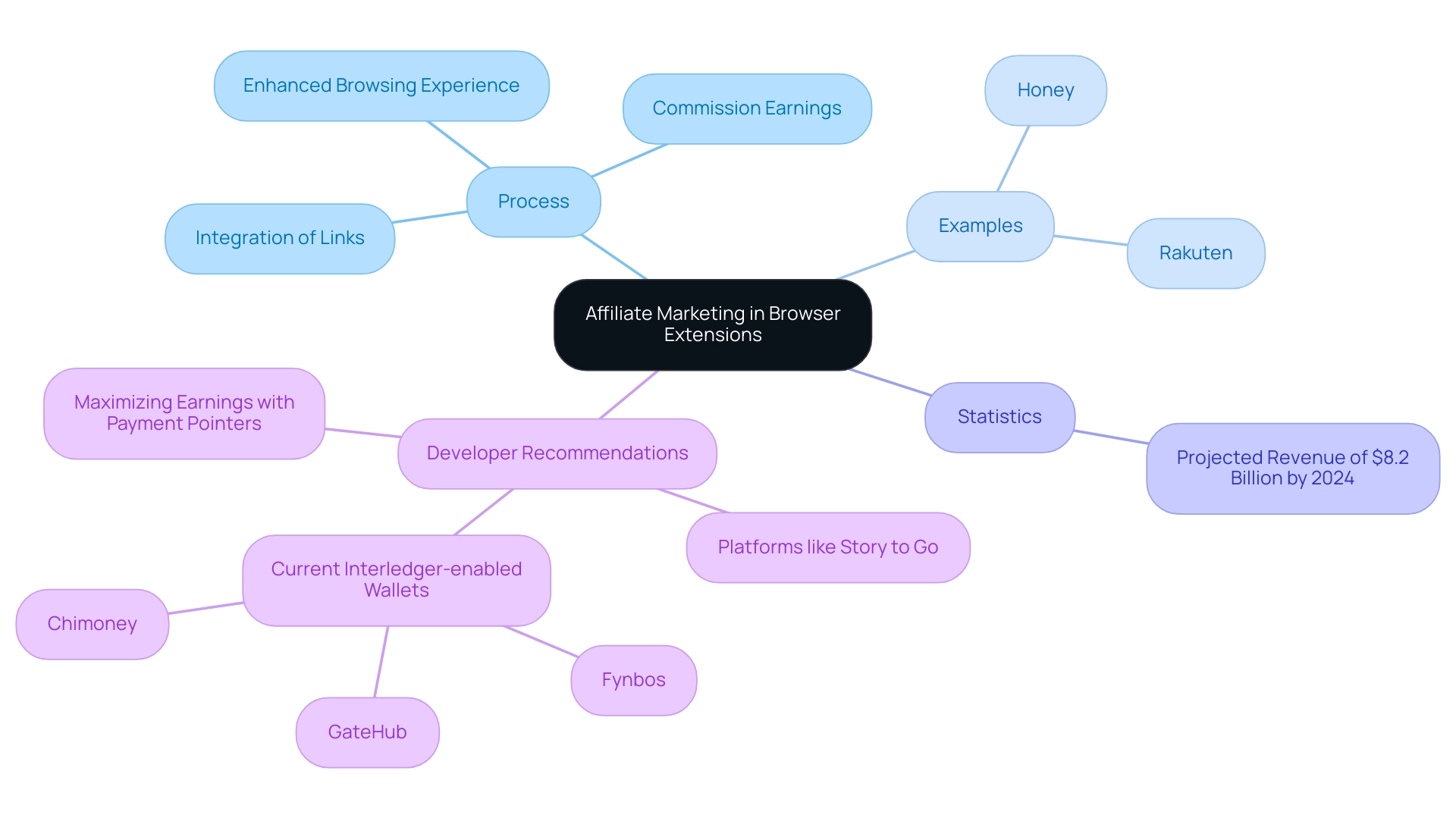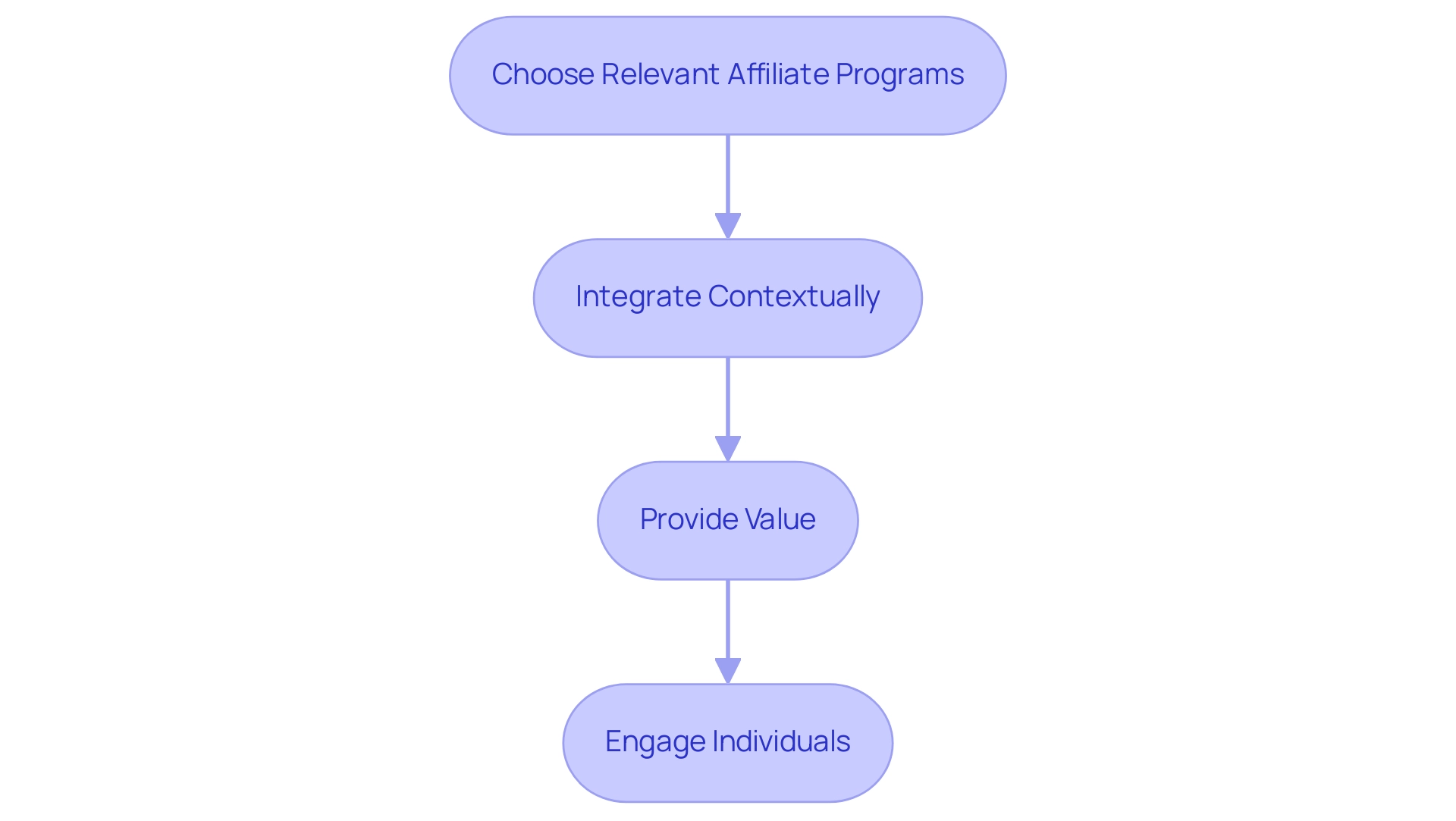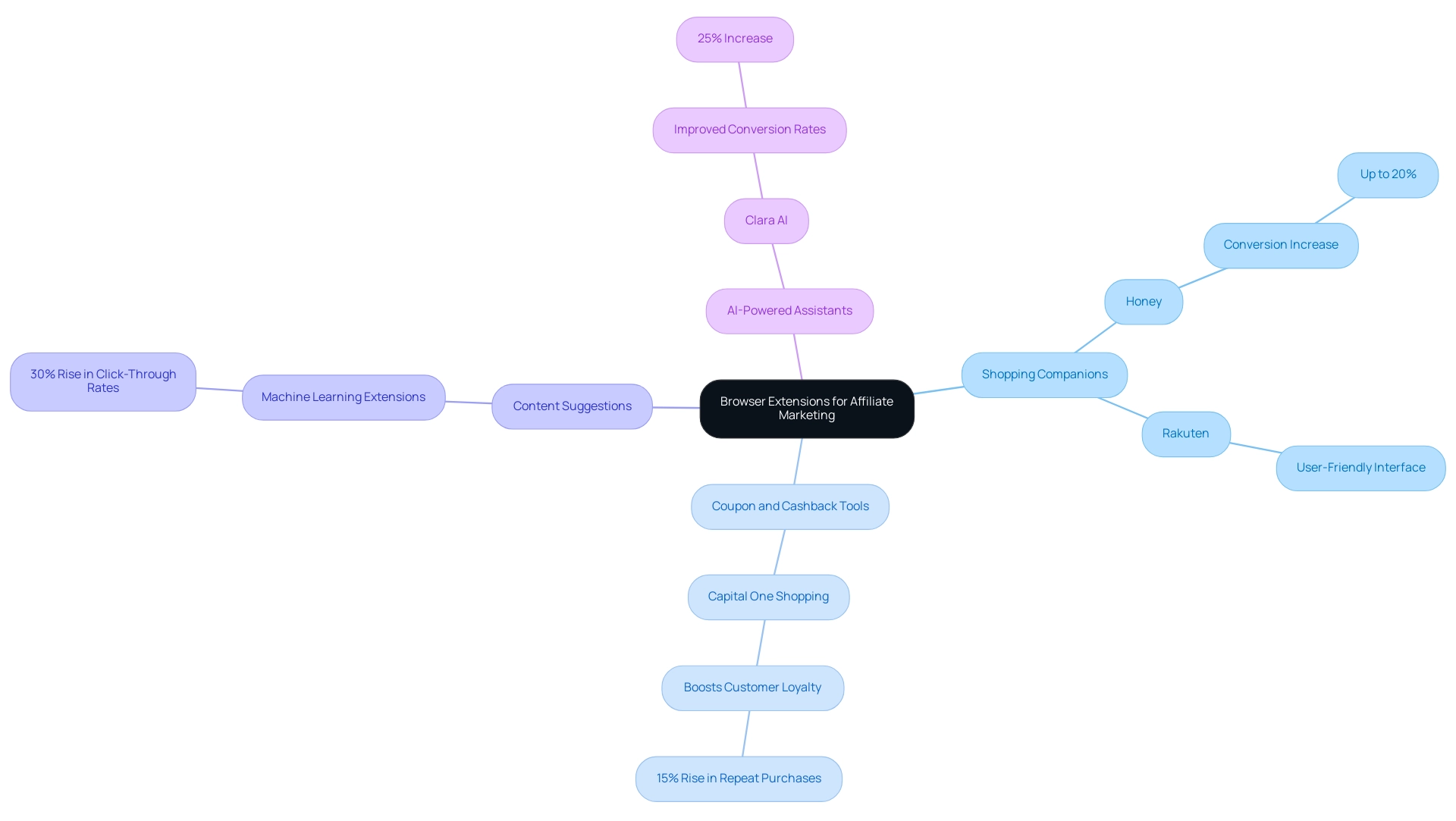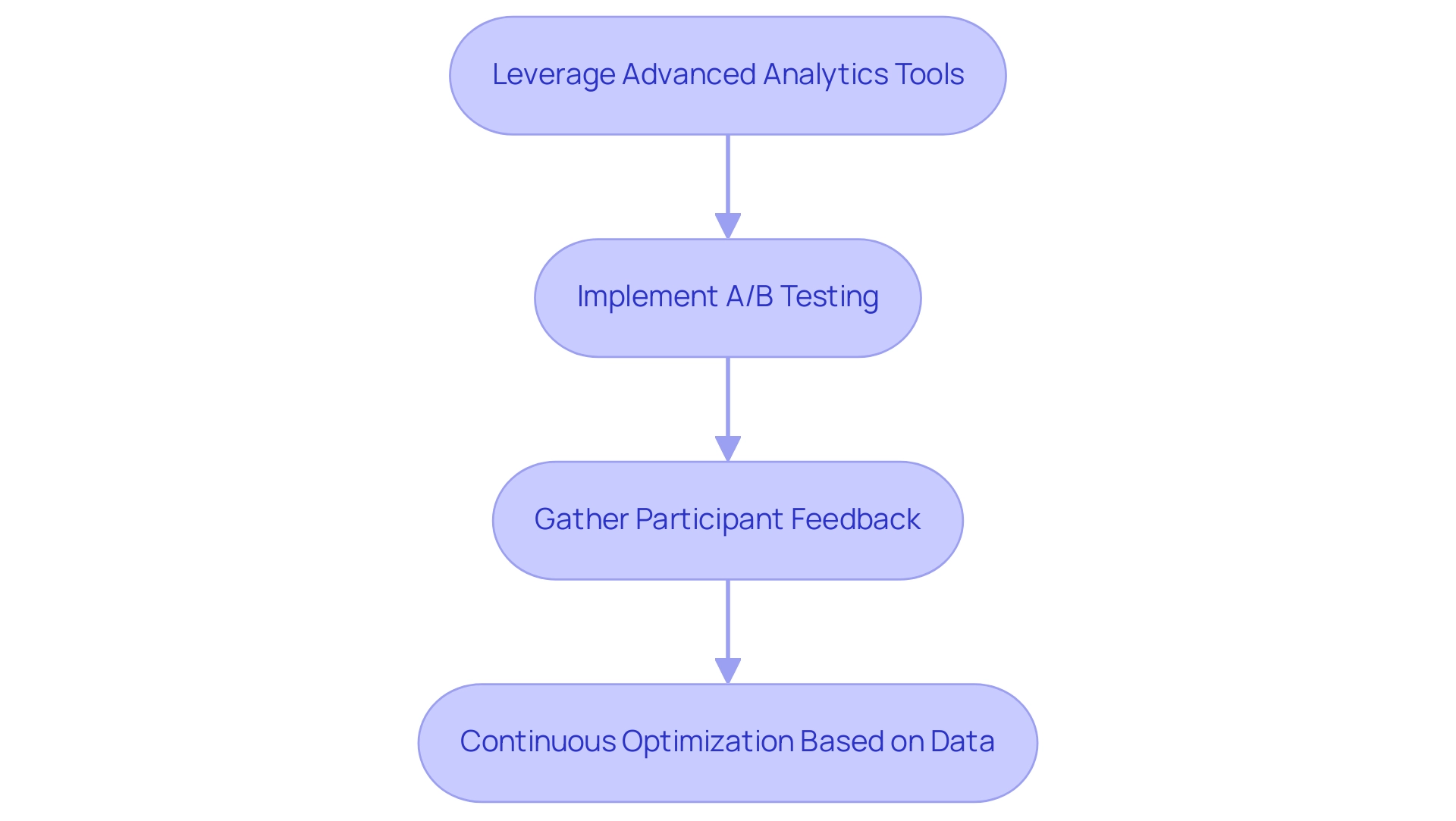Introduction
In the rapidly evolving landscape of digital marketing, affiliate marketing through browser extensions has emerged as a compelling strategy that not only enhances user engagement but also drives significant revenue for developers. By embedding promotional links within the functionality of these extensions, developers can create a seamless experience that connects users with valuable offers while benefiting from commission-based earnings. As the market for affiliate marketing is projected to reach a staggering $8.2 billion by 2024, understanding how to effectively integrate this approach is crucial for developers aiming to capitalize on the growing demand for digital monetization.
This article delves into the key strategies for successful affiliate marketing integration, explores the types of browser extensions that yield the best results, and outlines methods for measuring and optimizing these efforts to ensure sustained profitability.
Understanding Affiliate Marketing in Browser Extensions
Affiliate marketing in browser add-ons is a powerful strategy that integrates promotional links within the add-on's functionality. This process operates by enabling developers to embed links that, when clicked by individuals, direct to purchases at affiliated retailers. When a purchase is made through these links, the developer earns a commission, creating a mutually beneficial scenario. This integration not only enhances the browsing experience by showcasing exclusive discounts but also serves to increase revenue for developers.
For example, successful browser tools such as Honey and Rakuten employ partnership strategies to provide individuals with cash back and discounts, showcasing effective use in the e-commerce sector. According to recent statistics, affiliate marketing is projected to generate $8.2 billion in revenue by 2024, highlighting its growing significance in digital monetization strategies.
Kristina Terech, a computing writer, explains, 'Simply put, Web Monetization is a way that digital content creators can earn from streaming micropayments based on the amount of time that visitors spend on their digital content.'
Developers aiming to monetize effectively should keep an eye on platforms like Story to Go.ca/web-monetization-standard, which provides ongoing insights into the Web Monetization Ecosystem. With current Interledger-enabled wallets such as Fynbos, GateHub, and Chimney, the potential for maximizing earnings through comprehensive payment pointers is significant. Staying informed about these developments is crucial for maintaining competitiveness in this dynamic field.

Key Strategies for Successful Affiliate Marketing Integration
-
Choose Relevant Affiliate Programs: Ensuring the programs you select align with your add-on's purpose and audience interests is crucial. For instance, a productivity extension might partner with software tools designed to enhance efficiency for individuals. According to recent statistics, 70% of users prefer programs that offer products related to their interests, which can significantly enhance engagement. As HostGator's tiered payment structure illustrates, selecting the appropriate referral program can influence your earnings, with increasing payouts based on performance.
-
Integrate Contextually: Seamlessly embedding referral links within the functionality of your browser add-on can drive higher engagement. For instance, if your add-on provides price comparisons, incorporate referral links to the retailers being compared. This method not only preserves trust among individuals but also improves the overall usefulness of the tool, as individuals value pertinent suggestions.
-
Provide Value: Your affiliate offerings should enhance the experience of individuals. This can involve exclusive discounts or deals accessible through your extension. As one expert points out, merging passion and expertise with extensive market research can assist in recognizing profitable niches that thrill both you and your audience. Additionally, avoiding common mistakes, such as promoting irrelevant products, is essential for maintaining audience experience quality, as highlighted in the case study on avoiding common affiliate marketing mistakes.
-
Engage Individuals: Utilize notifications or alerts to inform individuals about relevant products or promotions. However, this should be done in a non-intrusive manner to maintain a positive experience. The pitch phase should be the shortest and least aggressive part of your strategy, relying on the trust built through the previous segments. Understanding typical errors can assist you in evading traps and developing a sustainable partnership strategy, ensuring your efforts are both efficient and considerate of individual preferences.

Choosing the Right Type of Browser Extension for Affiliate Marketing
When enhancing affiliate marketing initiatives, certain browser tools consistently outperform others:
-
Shopping Companions: These tools excel at assisting individuals in finding the best deals while seamlessly integrating affiliate links to various retailers. For example, tools such as Honey and Rakuten have shown effectiveness, with Honey reporting a rise in conversions by up to 20% due to their user-friendly interface and capability to automatically apply discounts at checkout. Their intuitive functionality guarantees individuals can easily access discounts, increasing the likelihood of conversions.
-
Coupon and Cashback Tools: Created to maximize savings for individuals, these tools are especially effective for brands providing discounts. They not only attract cost-conscious shoppers but also foster loyalty through cashback rewards, driving repeat business. For instance, tools such as Capital One Shopping have demonstrated their ability to boost customer loyalty by providing cashback rewards, leading to a 15% rise in repeat purchases for participating merchants.
-
Content Suggestions: Tools that gather articles or products based on individual preferences are very effective at integrating referral links. By providing relevant suggestions, they enhance engagement and drive conversions through personalized content. Recent advancements in this field include extensions that employ machine learning to better comprehend individual preferences, resulting in a 30% rise in click-through rates for partner links.
-
AI-Powered Assistants: Utilizing artificial intelligence, these assistants provide customized product suggestions, aligning perfectly with individual preferences. Their capability to offer customized shopping experiences makes them a powerful resource for partnerships. For example, tools like Clara AI have improved conversion rates by 25% by analyzing user behavior and suggesting products accordingly.
Bradley Keys, a seasoned digital marketing strategist, emphasizes, "When he’s not crafting marketing magic, you can find him sharing insights on LinkedIn or enjoying life in Los Angeles." His expertise emphasizes the significance of utilizing advanced technologies and user-focused strategies in partnership marketing.
Awin's support options, including direct communication with advertisers and a comprehensive support center, further enable partners to tackle common challenges. This robust support system ensures partners maintain optimal campaign performance, as demonstrated in numerous case studies. As Cyber Week 2024 nears, with an anticipated $40.6 billion in online expenditure, strategically employing these browser tools will be crucial for optimizing partnership success.

Measuring Success: Tracking and Optimizing Affiliate Marketing Efforts
To effectively gauge the success of your affiliate marketing initiatives within browser extensions, it's crucial to employ the following strategies:
-
Leverage Advanced Analytics Tools: Harness the power of tools like Google Analytics to meticulously track user interactions with referral links, monitor conversion rates, and assess overall campaign performance. Insights from these tools can reveal crucial patterns and trends, enabling data-driven decision-making.
-
Implement A/B Testing: Conduct A/B tests to compare various placements and formats of partner offers. By experimenting with various approaches, you can identify the most effective strategies that maximize engagement and conversion rates. Recent advancements in A/B testing for affiliate marketing strategies in 2024 have highlighted significant improvements in refining these techniques.
-
Gather Participant Feedback: Actively seek input from your audience to gain a deeper understanding of their experiences and preferences. This direct input is invaluable for making informed adjustments that enhance user engagement and drive higher conversion rates.
-
Continuous Optimization Based on Data: Utilize the insights derived from tracking analytics to continuously fine-tune your partnership strategies. Focus on optimizing the most successful tactics and phasing out less effective ones. For instance, Brian Dean's success with Ahrefs, earning over $20,000 in commissions in just one month, exemplifies the impact of data-driven optimization and high-quality content. As Brian Dean states, "Creating a community around your content is essential for driving success in partnerships."
By integrating these practices, you can build a robust and sustainable affiliate marketing program for your browser extensions, ensuring long-term success and profitability.

Conclusion
Affiliate marketing through browser extensions presents a unique opportunity for developers to enhance user engagement while driving significant revenue. By embedding affiliate links within the functionality of these extensions, developers can create a seamless experience that not only showcases valuable offers but also generates commission-based earnings. The strategies discussed, from selecting relevant affiliate programs to optimizing user experience through advanced analytics, are essential for maximizing the effectiveness of these initiatives.
Choosing the right type of browser extension, such as shopping companions or AI-powered assistants, can further amplify the potential for success in affiliate marketing. By understanding user preferences and providing tailored recommendations, developers can significantly improve conversion rates and foster user loyalty. The importance of continuous optimization through A/B testing and user feedback cannot be overstated; these practices ensure that affiliate marketing efforts remain relevant and effective in a rapidly changing digital landscape.
As the affiliate marketing sector continues to grow, projected to reach $8.2 billion by 2024, embracing these strategies will be crucial for developers looking to capitalize on this trend. By effectively integrating affiliate marketing into browser extensions, developers can not only enhance their revenue streams but also deliver a more engaging and valuable experience for users. The potential for success is vast, and now is the time for developers to innovate and thrive in this dynamic environment.





